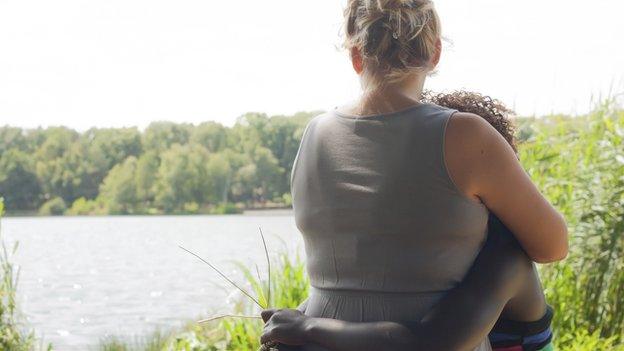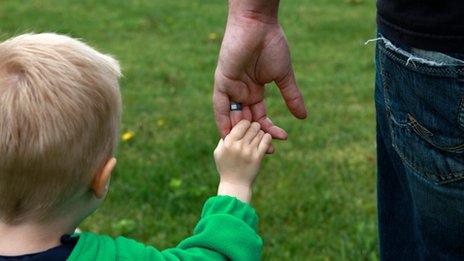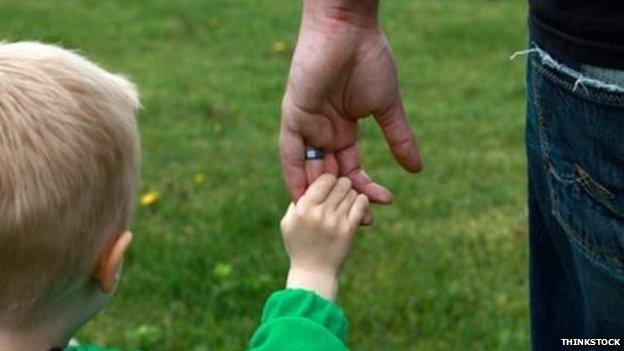Teenagers in foster care moved too often, charity warns
- Published

The charity's research was based on information from 1,125 carers in the UK
Teenagers in foster care in the UK are being moved too often, a survey has suggested.
More than a third of teenagers in care are already living with their third foster family, according to research carried out by The Fostering Network.
The charity said being moved from home to home was "hugely detrimental" to wellbeing and education.
It also said the country needs about 8,000 more foster carers to cope with rising demand.
Around 52,500 of the 63,000 children in care in the UK live with foster families and the vast majority will spend their entire childhoods in foster care with only around 10% being adopted, The Fostering Network said.
The research found that one in four (25%) fostered teenagers are living with at least their fourth family in care, and one in six (17%) with their fifth.
'Split up'
A spokesman said: "Being moved from home to home can have a hugely detrimental effect on children's education, well-being and ability to make and maintain relationships.
"Not being able to find the right foster carer also means that children too often have to live a long way from family, friends and school and are split up from their brothers and sisters."
The charity said the figures showed the need for more foster carers and it predicted the UK would need 8,300 more carers to cope with demand in the coming years.
The survey was released to mark the start of charity's annual annual Foster Care Fortnight campaign, which runs until Sunday 14 June and is the UK's annual awareness campaign about fostering.
Jackie Sanders, director of The Fostering Network, said: "As each year passes, we see more and more children coming into care.
"We need people who can open their heart, and their homes, to vulnerable children and young people and use their skills to help support them to reach their full potential.
"In particular we need people who have the skills, patience and passion to look after teenagers who may have had a really tough time and be facing some real challenges, and to offer them love, stability and security."
The survey was completed in April by 1,125 foster carers about 1,608 children in their care.
- Published14 January 2015

- Published1 June 2015
